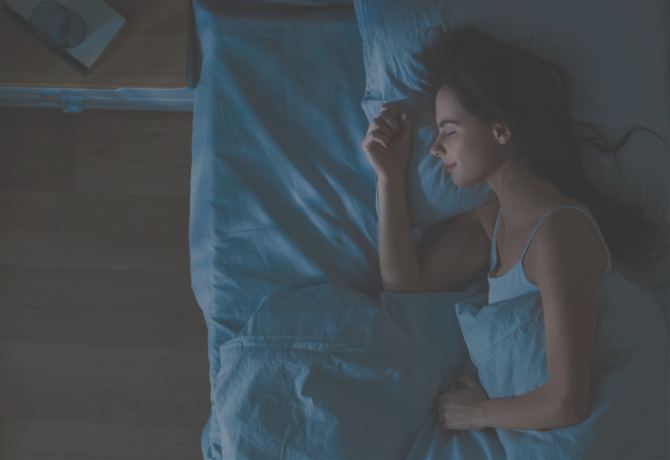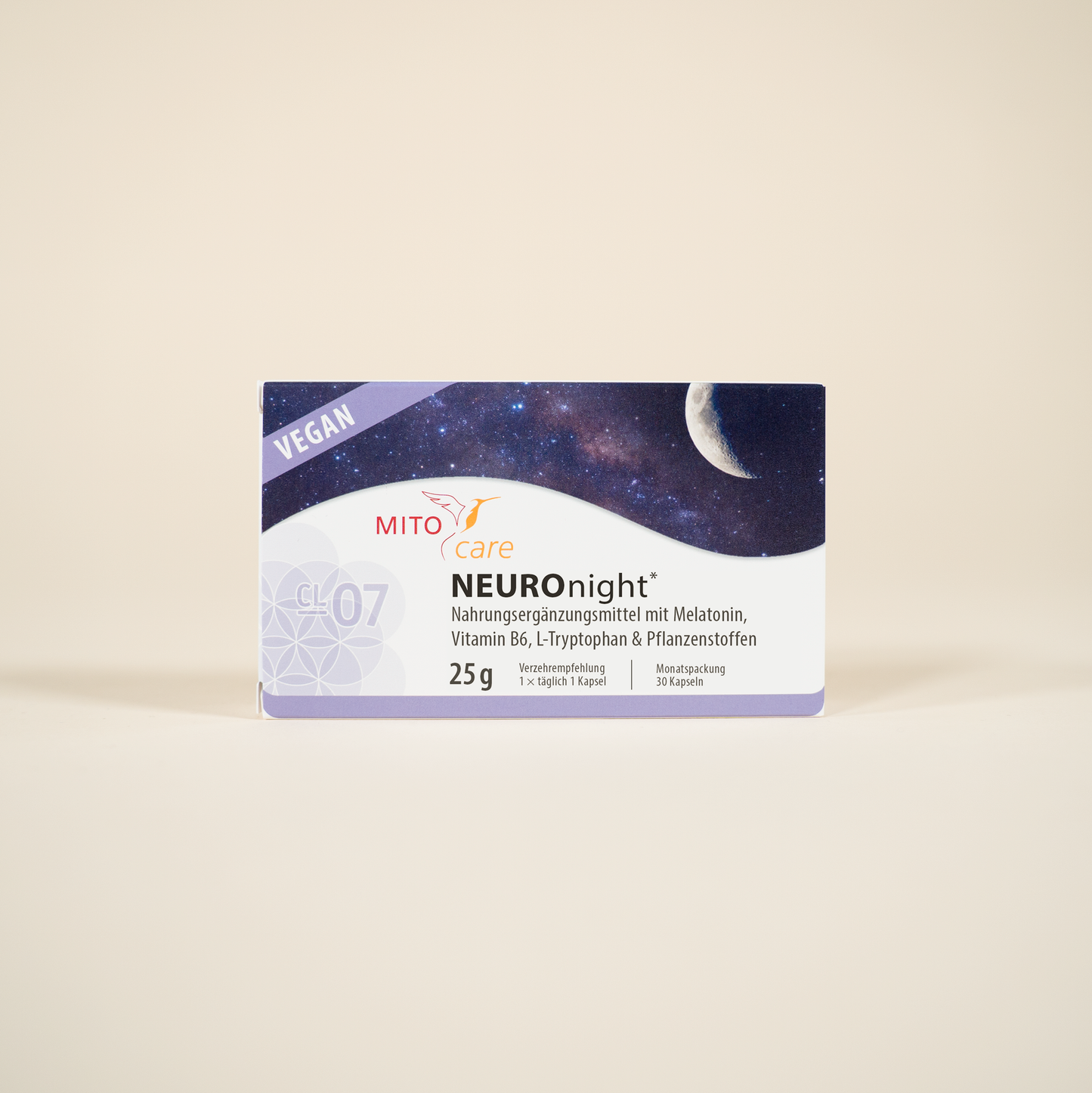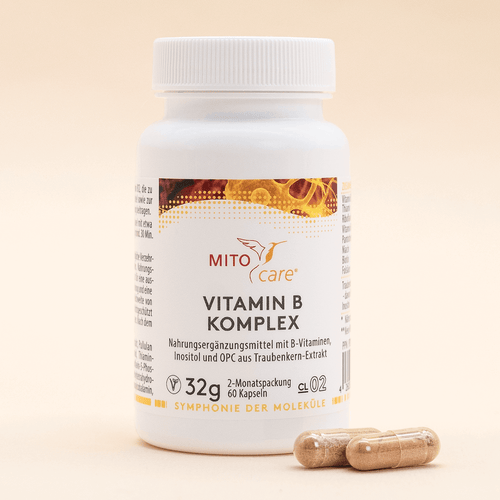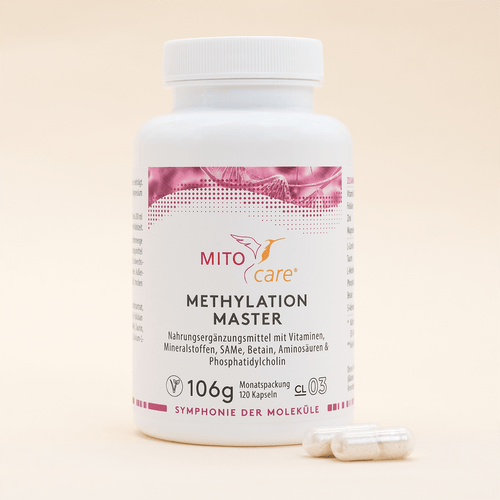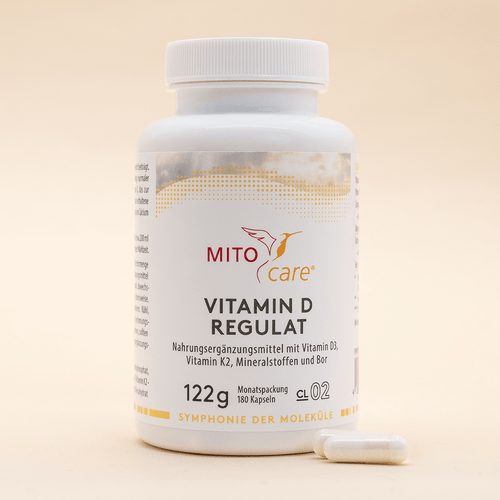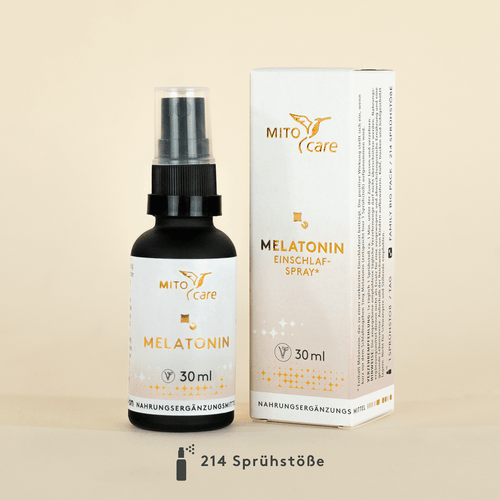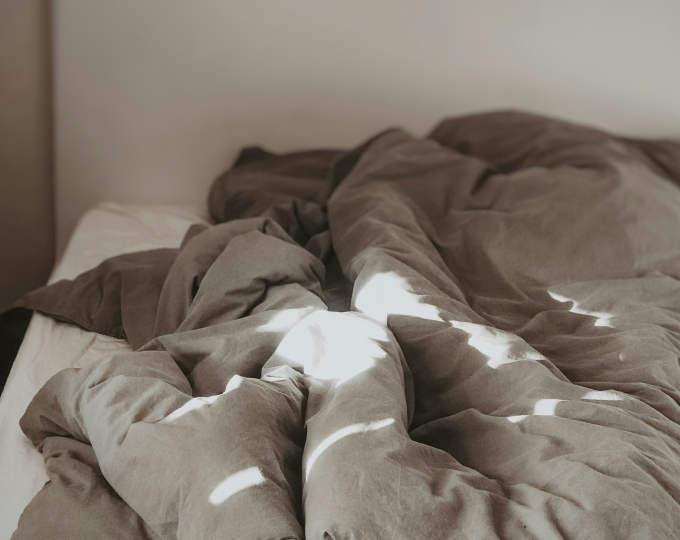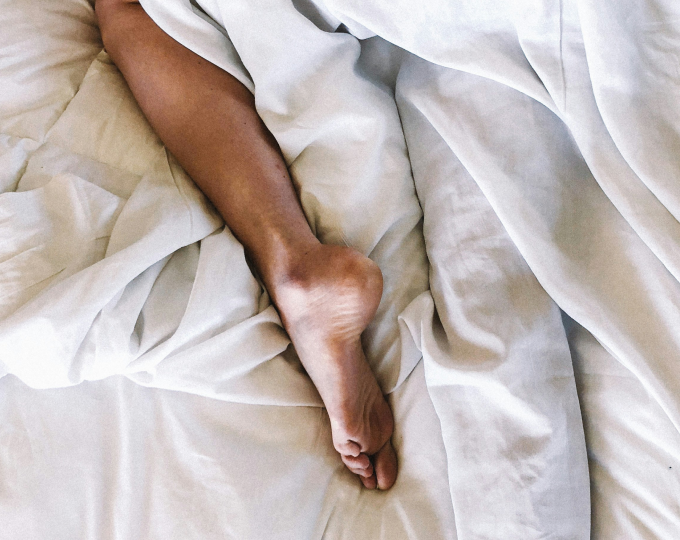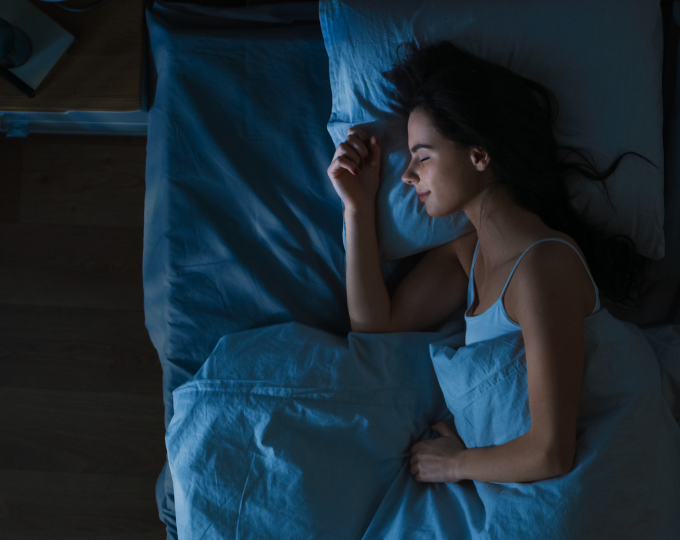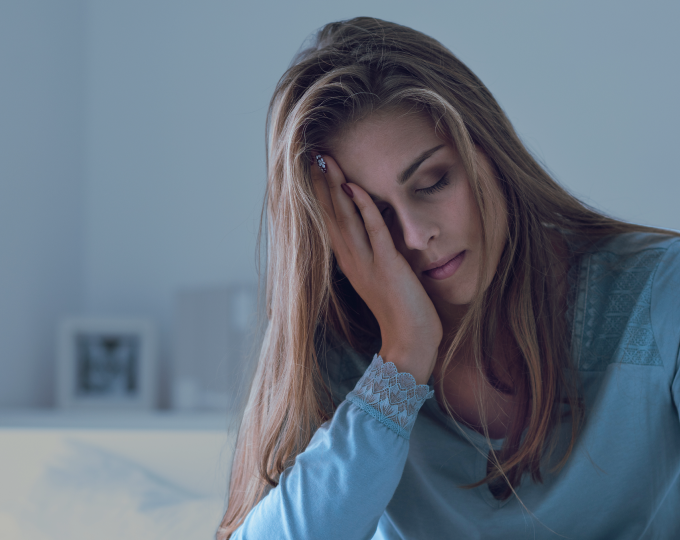Themen dieses Blogartikels:
Table of contents
- When sleep becomes a problem - these are possible causes
- Which vitamins and co. are important for good sleep?
- #1 B vitamins - the nerve vitamins
- #2 SAMe, betaine and choline - the methyl group donors
- #3 Vitamin D - the sun vitamin
- #4 Plant extracts - the natural helpers
- #5 Melatonin and tryptophan - the pacemakers
- Which vitamins are missing in sleep disorders?
- What to do about vitamin deficiency?
- 5 reasons why a good night's sleep is so important
- 1. sleep simplifies thinking
- 2. sleep regenerates
- 3. sleep lifts the mood
- 4. sleep improves resilience
- 5. sleep helps the body to help itself
- Bibliography
When sleep becomes a problem - these are possible causes
If you have trouble falling asleep or staying asleep, there are various triggers that can be responsible. The most common reasons why people suffer from sleep disorders and poor sleep quality include
- Feelings of stress and anxiety
- Alcohol and drug consumption
- Side effects of medication
- Cardiovascular diseases
- Chronic diseases of the musculoskeletal system (rheumatism) or the endocrine system (Hashimoto's)
- Depression
- Heavy meals in the evening
- Shifted sleep-wake rhythm, for example due to social jet lag
- Unfavorable sleeping atmosphere
- Poor sleep hygiene
- Lack of nutrients, for example vitamin D deficiency, vitamin B12 deficiency
As varied as the causes of sleep disorders and sleep deprivation are, the possible solutions are just as numerous. Find out now how you can use vitamins for better sleep, for example.
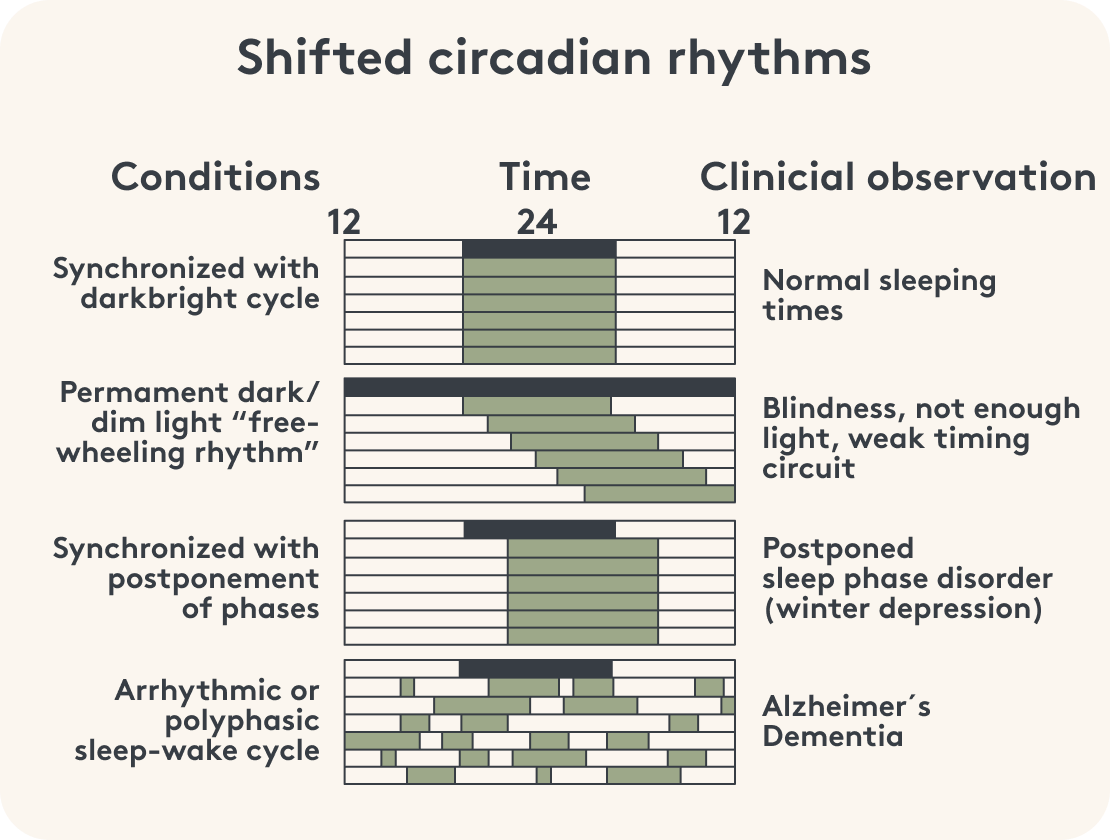

Which vitamins and co. are important for good sleep?
Which vitamins and co. are important for good sleep?
#1 B vitamins - the nerve vitamins
B vitamins are involved in many processes of the nervous system and are therefore also known as nerve vitamins. They are important for energy metabolism and the production of the sleep hormone melatoni.
Without this hormone, your sleep-wake rhythm would be completely out of balance. A restful sleep with sufficient deep sleep phases would be impossible. In order for your brain to produce melatonin, it needs various nutrients.
These include:
- Vitamin B3
- Vitamin B6
- Vitamin B9 (folic acid)
- Vitamin B12
Find out in the blog why vitamin B12 is important for your body.
#2 SAMe, betaine and choline - the methyl group donors
What the body also needs for melatonin production are methyl groups. These are small chemical structures that are involved in the formation and regulation of DNA and ensure the formation and breakdown of hormones or neurotransmitters in the metabolism.
These methyl groups are usually bound to so-called methyl group donors, which can release their methyl groups in a regulated manner. In your body, these are SAMe (or S-adenosylmethionine), choline and betaine.
#3 Vitamin D - the sun vitamin
Vitamin D ensures a good mood, as it is involved in the production of the happiness hormone serotonin. This hormone is the basis for the body's ability to produce the sleep hormone melatonin. A vitamin D deficiency could therefore have an effect on sleep.
Especially in winter, when the sun goes down early, the vitamin is in short supply. To counteract sleep disorders caused by vitamin D deficiency, vitamin D levels can be increased through food, among other things.
#4 Plant extracts - the natural helpers
Plant substances to help you sleep? Even primitive peoples were concerned with the connection between nature and sleep. Some cultures therefore use herbal approaches to treat sleep disorders.
In traditional Chinese medicine or Ayurveda, for example, many plant extracts are known to have potentially positive effects, which are now also being taken up by scientific research.
- Green tea contains L-theanine, which is one of the amino acids and, according to various studies, could be a safe method of improving sleep quality1.
- The ashwagandha plant, known from Ayurveda, also provides promising results - it could potentially be helpful in treating insomnia and anxiety during periods of stress2,3.
- Native plant extracts from the hop blossom or lavender are also often associated with sleep and can be found in relaxation teas, for example.
#5 Melatonin and tryptophan - the pacemakers
The sleep hormone melatonin and its precursor, the essential amino acid L-tryptophan, are essential when it comes to falling asleep and staying asleep. It has already been shown that melatonin shortens the time it takes to fall asleep and can help to alleviate jet lag symptoms4.
Which vitamins are missing in sleep disorders?
Sleep disorders can be caused by a lack of vitamin D or B vitamins. Symptoms of a vitamin deficiency are, for example
- Drowsiness and tiredness
- Restless legs syndrome
- Inner restlessness
- Concentration and sleep disorders
- Arms or hands falling asleep
There may also be a deficiency of other vital substances. A test that you can carry out with your doctor or a test kit will tell you which vitamins you may be lacking if you have sleep disorders.
What to do about vitamin deficiency?
If you know whether a vitamin B6 deficiency is causing you sleep problems or you need to optimize your vitamin B12 level, taking supplements before bedtime can help.
A balanced diet for the intake of important vital substances also plays a role in restful sleep. It is also important to improve the quality of your sleep with exercise, relaxation and a place to sleep where you feel completely comfortable.
In our blog, you will find 10 tips for better sleep that you can easily integrate into your everyday life.
5 reasons why a good night's sleep is so important
Why should you look into the effect of vitamins and vital substances on your sleep and make sure you get enough vitamins? Because the quality of your sleep can depend on it. Finally, here are five arguments for a good night's sleep.
1. sleep simplifies thinking
While you sleep, your body activates the glymphatic system. This body's own cleansing program frees your central nervous system from ballast night after night. Everything that accumulates in the nerve cells during the day and is no longer needed flies out.
If this process is disrupted, cell metabolism can no longer function properly, which can lead to the death of nerve cells. However, if you give your glymphatic system the sleep it needs, your cognitive performance will improve.
2. sleep regenerates
In addition to your brain, your musculoskeletal system also recovers during sleep. If you do a lot of sport, small tears often form in your muscles, which your body repairs at night:
- Studies show that poor muscle recovery and an increased inflammatory response are often linked to a lack of sleep5.
- In another study in 2022, researchers found that poor sleep increased susceptibility to musculoskeletal injuries in young athletes7.
For people who enjoy sports, sleep is therefore doubly important: good sleep reduces the risk of injury, while particularly good sleep could even minimize injuries8.
3. sleep lifts the mood
There are days when a lot happens. But even on average days, our subconscious collects numerous experiences that the body has to process in peace at night - for example in the form of dreams. This is important for emotional stability, alertness and mood9.
4. sleep improves resilience
Your sleep and the quality of your sleep have an influence on your stress resilience10. The higher your resilience, the better you can deal with stressful situations.
5. sleep helps the body to help itself
Researchers have long suspected that sufficient sleep is important for the immune system. It is still unclear how sleep influences certain immune functions.
However, one study has shown: After three hours without sleep, the function of white blood cells, which are responsible for fighting pathogens in the body, is affected6.
This article is based on carefully researched sources:
Sources & bibliography
- Rao, T. P., Ozeki, M., & Juneja, L. R. (2015). In Search of a Safe Natural Sleep Aid. Journal of the American College of Nutrition, 34(5), 436–447.
- Speers, A. B., Cabey, K. A., Soumyanath, A., & Wright, K. M. (2021). Effects of Withania somnifera (Ashwagandha) on Stress and the Stress- Related Neuropsychiatric Disorders Anxiety, Depression, and Insomnia. Current neuropharmacology, 19(9), 1468–1495.
- Cheah, K. L., Norhayati, M. N., Husniati Yaacob, L., & Abdul Rahman, R. (2021). Effect of Ashwagandha (Withania somnifera) extract on sleep: A systematic review and meta-analysis. PloS one, 16(9), e0257843.
- Melatonin helps to shorten the time it takes to fall asleep and contributes to alleviating the subjective feeling of jet lag.
- Mônico-Neto, M., Dáttilo, M., Ribeiro, D. A., Lee, K. S., de Mello, M. T., Tufik, S., & Antunes, H. K. M. (2017). REM sleep deprivation impairs muscle regeneration in rats. Growth factors (Chur, Switzerland), 35(1), 12–18.
- Viegas, F., Ocarino, J. M., Freitas, L. S., Pinto, M. C., Facundo, L. A., Amaral, A. S., Silva, S., de Mello, M. T., & Silva, A. (2022). The sleep as a predictor of musculoskeletal injuries in adolescent athletes. Sleep science (Sao Paulo, Brazil), 15(3), 305–311.
- Chennaoui, M., Vanneau, T., Trignol, A., Arnal, P., Gomez-Merino, D., Baudot, C., Perez, J., Pochettino, S., Eirale, C., & Chalabi, H. (2021). How does sleep help recovery from exercise-induced muscle injuries?. Journal of science and medicine in sport, 24(10), 982–987.
- Short, M. A., & Chee, M. W. L. (2019). Adolescent sleep restriction effects on cognition and mood. Progress in brain research, 246, 55–71.
- Meerlo, P., Sgoifo, A., & Suchecki, D. (2008). Restricted and disrupted sleep: effects on autonomic function, neuroendocrine stress systems and stress responsivity. Sleep medicine reviews, 12(3), 197–210.
- How sleep strengthens the immune system. PM of the University of Tübingen
